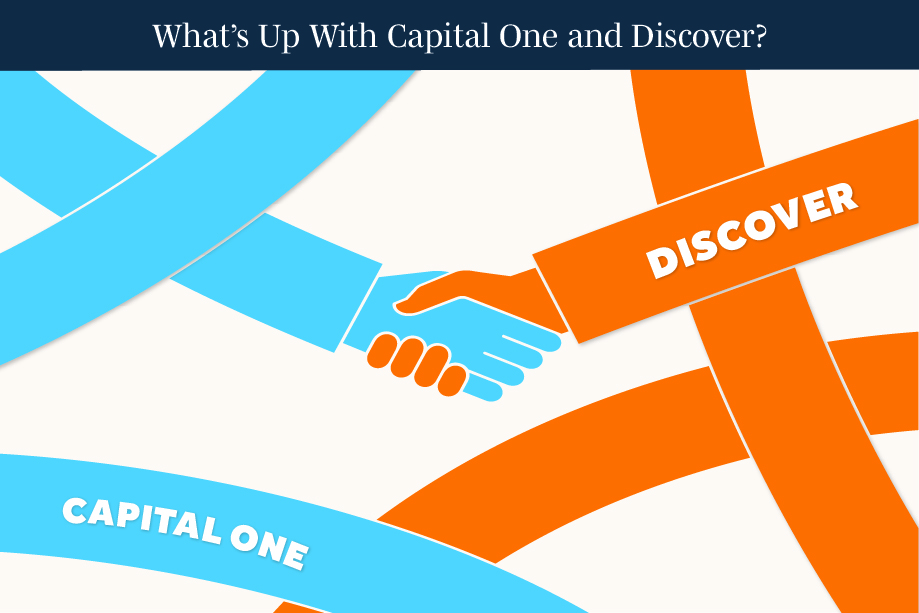The big news this week in payments is Capital One’s possible acquisition of Discover. It’s a potential game-changer; whether or not it’s approved, it’s going to impact the evolution of the space going forward.
Datos Insights has received many questions from our clients about this announcement, so we polled analysts from our different teams to get their thoughts and insights. You’ll notice some slight differences of opinion, but everyone here has a different perspective on the same event, and we thought that the differences were worth sharing.

Will federal regulators approve the transaction?
- “Yes. Ultimately, the new company will be a much larger version of what Discover is today –card networks owned by a bank. It may not be approved if politicians start to raise concerns (which is already happening).”
- “I would say yes, it may be approved, but I only give it a 65% to 70% chance.”
- “Yes, ‘regulatory arbitrage’ must be one of the contributing values seen in the deal. And yes, the regulators may focus on that and several other issues: anti-trust concerns, the complexity around one of the four U.S. credit card networks changing ownership (which has never happened before), requirements for divestiture may reduce the value of the deal, and a mountain of minutiae regarding any large complex transaction.”
Is leveraging Durbin exclusions driving this?
- “It’s part of it. Moving to Discover debit will generate hundreds of millions in new interchange revenue. They will also be excluded from the CCCA if it passes as written today.”
Does this announcement potentially create a formidable competitor to Visa, Mastercard, and Amex?
- “Yes, in time. Capital One will work hard to bring acceptance on par with Visa and Mastercard, and moving 7 million debit cards to Discover will help a lot. Still, Discover will struggle to get bank and credit union issuers on board until they figure out the acceptance issue, so it won’t be a noticeable risk to Visa/Mastercard until that is figured out. Cap One will certainly focus on acceptance when they convert their debit cards to Discover. Amex will remain the preferred premium brand.”
- “The biggest risk to Visa/Mastercard is losing Cap One as a debit/credit card issuer or having to renegotiate terms, considering that Cap One is now in a very competitive position against those networks.”
- “Banks that see Cap One as a competitor will probably drop Pulse as their PIN network. This will help other PIN networks. In fact, this deal could impact Pulse even if it falls through because banks may see this as a risk.”
- “Yes, I think it will. It provides a more competitive solution to Visa and Mastercard, which the Feds (and many in Congress) believe are a duopoly. The combined Cap One/Discover combo could push more favorable interchange rates to merchants, driving Visa/Mastercard to lower their fees. It will also likely steer more merchants to use the Discover/Pulse debit rails, which will take volume away from Visa/Mastercard. These are other likely developments that will bring more competition to the card space, which the Fed should like.”
- “As of 2022, the distribution of U.S. credit card volume was: Visa 53%, Mastercard 24%, Amex 20%, and Discover 4%. So even if 100% of Capital One’s volume were added in, it still would not shift the market appreciably.”
Do you think the Capital One/Discover relationship could be positioned similarly to AMEX, offering additional product and reward opportunities that seem only available to AMEX today?
- “Yes. Capital One referenced its strong merchant relationships during the call and plans to build upon that with this new network.”
- “Cap One’s sights are not set on becoming something akin to Amex. There are far greater opportunities in this combination. Amex has its niche in business and high-wealth clients. Cap One and Discover will directly attract the mass market consumer base. There is more of a merchant play in this. Cap One will greatly benefit from the additional merchant data insights that it so desperately wants to get. Considering how strong Cap One is at data analytics, it will be able to monetize the merchant data in ways that others haven’t done yet. I expect Cap One card-not-present authorization approval rates will rise significantly, among other benefits.”
- “Yes, this may be the biggest potential value in the deal. There are several sources of value within this deal, e.g., ‘takeout’ expense saving after the new org is rightsized, increasing scale to reduce per unit expense, renegotiating vendor and network contracts. However, the most significant value may be in the new capabilities that the new organization might possess by having large credit and debit card issuing scale under the same roof as a large merchant services business and, most importantly, a network. Is the four-party model at risk, maybe?”
- “Discover, while a large issuer, does not have remotely the same business and commercial card footprint that Amex does (commercial payments account for about half of Amex’s total activity). Cap One/Discover will need to focus on product features, incentives, and capabilities but doesn’t really have any advantages here outside of Cap One’s existing commercial and business card customers. That lack of commercial footprint will undoubtedly hold them back from competing with Amex anytime soon.”
It’s way too early to predict if this acquisition will actually happen and, if it does, what the combined organization will look like and what the potential impact it would have on the payments ecosystem. But what we can say at this time is that our worldview changed this week, and the arc of the evolution of payments has shifted. It’s going to be interesting to see what happens next.

